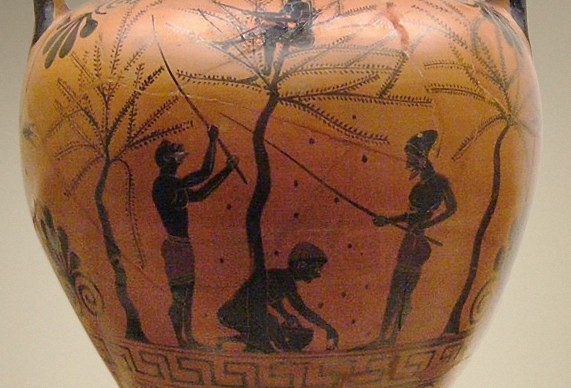The Monstrous and the Bestial: Animals in Greek Myths
In the myths, the ancient GreeJcs were at times rather positive toward animals. The Olympian gods were often represented as wild animals, usually symbolizing some divine attribute.
Farming in the ancient Greek world: how should the small free producers be defined?
The peasant is often defined as a small self-sufficient producer who employs family labour to work a mixed farm. Living in little rural communities and a specific tradi- tional culture constitute other aspects of his specific situation. Agrarian societies often present social differentiations and involve several rapports between cultivators and the landed gentry.
Vergil's Aeneid VIII and the Shield of Aeneas: recurrent topics and cyclic structures
An analysis of Book VIII of Vergil’s Aeneid will result in the observation that this book forms a cyclus in the way that it ends as it starts, the preparations being underway for the war against Mezentius. Inside this frame, two units, the first larger than the second, concentrate on the topics of Hercules’ connection with Rome and the shield of Aeneas.
DEMOCRATISATION OF GREEK SOCIETY DURING THE ARCHAIC ERA?
In the modern scholarship of the Ancient Greek history there is a well known and well established conception of an universal democratisation of Greek society during the Archaic and Early Classical periods. It could be summarised roughly as follows:1 Af- ter the fall of the Bronze Age Mycenaean civilisation, in the so-called Dark Ages (11th to 8th centuries B.C.), the Greek communities were governed by the kings (basilees).
THE ARCHAIC BIOGRAPHY OF HOMER
Thus the discussions about which of the epics might have been composed by Homer, as well as the considerations about his person and life seem to have taken place simultaneously, at the end of the 6th century. The increased interest in the person of the poet gives reason to assume that something in connection with those discussions might have also been put down at that time.
